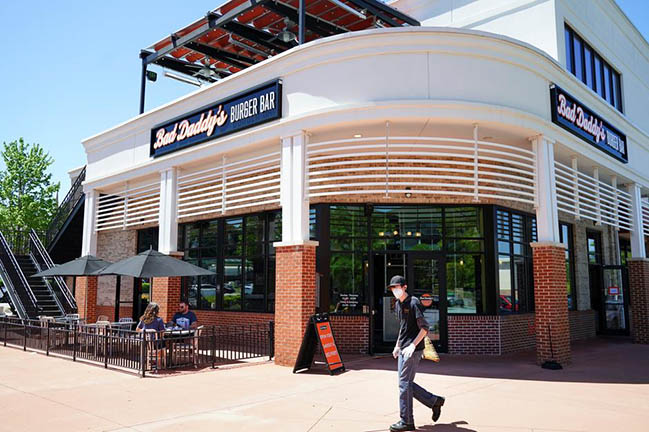ATLANTA, (Reuters) – Georgia, at the vanguard of states testing the safety of reopening the U.S. economy in the midst of the coronavirus outbreak, permitted restaurant dining for the first time in a month yesterday while governors in regions with fewer cases also eased restrictions.
Eager to revive battered commerce despite warnings from medical experts that public health safeguards such as large-scale virus screenings remain largely absent, a handful of states from Montana to Mississippi were also set to reopen some workplaces that were shuttered for being non-essential.
Alaska, Oklahoma and South Carolina, along with Georgia, previously took such steps after weeks of mandatory lockdowns that have thrown millions of Americans out of work and led to forecasts that an economic shock of historic proportions is at hand.
President Donald Trump and some local officials have criticized Georgia Governor Brian Kemp for forging ahead to add restaurants and movie theaters to the list of businesses – hair and nail salons, barber shops and tattoo parlors – that he allowed to reopen last week, albeit with social-distancing restrictions still in force.
No companies are required to reopen, and it remained to be seen how many merchants would choose to return to business and how many customers would show up if they do.
Some owners and managers of eateries in Atlanta, the state’s largest city and capital, were less than enthusiastic. “It’s not safe,” said Brian Maloof, owner of Manuel’s Tavern, a fixture for more than 60 years. “I don’t know when we’ll open, but I’m afraid it won’t be anytime soon.”
But Moe’s Original BBQ by the Georgia Tech campus hung an open sign on the door for the first time in a month. “I don’t know if this is a big step to normal, but at least it’s something,” owner Brian Mancuso said of his trickle of lunch customers.
In the hardest-hit states of New York and New Jersey, part of a metropolitan region of about 32 million people, governors signaled that even limited restarting of business activities was at least weeks away.
Even though Georgia has allowed movie theaters to reopen, three major movie theater chains – AMC, Regal and Cinemark – as well as most if not all smaller exhibitors have no plans to reopen anywhere for the time being. “We don’t feel it’s safe enough for our staff or our customers to just open up for regular business, even with sort of preventive measures,” said Christopher Escobar, owner of the Plaza Theater, billed as Atlanta’s only independent cinema.
Drive-in theaters may be an exception. The Swan Drive-In Theatre in Blue Ridge, north of Atlanta, planned to open this weekend, with new rules for parking and concessions to assure social distancing.
Business shutdowns to stem the spread of coronavirus have led to a record 26.5 million Americans filing for unemployment benefits since mid-March – nearly one in six workers – with the Trump administration projecting that the jobless rate will likely hit 16% or more in April.
Almost a third of all U.S. adults have already reported seeing their jobs or finances diminished by the pandemic, according to a Gallup survey released on Monday.
States moving ahead with reopenings, by and large, are concentrated in the South, the Midwest and the mountain West, where outbreaks have generally been less severe.





